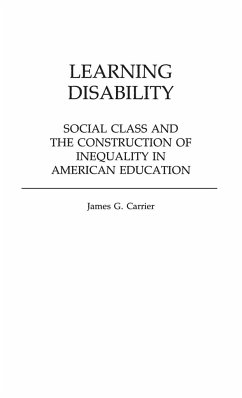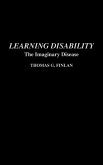This book was written for sociologists concerned with education, but should be read by anyone interested in learning disability as a concept, either from a practical or theoretical standpoint. It is especially recommended for special educators and other professionals concerned with children who experience difficulties in school learning, as well as for the parents of such children. . . . Carrier has written an intelligent, well-documented, and important book that should provoke a great deal of controversy for some time to come. Contemporary Sociology James G. Carrier presents a detailed historical description of the social and educational assumptions integral to the idea of learning disability. Drawing upon the works of leading authorities in the field, Carrier addresses a number of questions from an essentially Marxist perspective. His discussion revolves around the way in which social order structures reality, how that structured reality affects daily social practices, and how this, in turn, perpetuates the social structure which conditioned the practices in the first place. Dividing his discussion into three parts, Carrier first examines the contrast between structure and process in the theory of learning disability espoused by Burke and Boudrieu, moves on to consider the structural approach to the content and meaning of the theory, and finally provides a processualist consideration of why different groups came to support it. Finally, the author presents some of his conclusions about the conflict he has described.
Hinweis: Dieser Artikel kann nur an eine deutsche Lieferadresse ausgeliefert werden.
Hinweis: Dieser Artikel kann nur an eine deutsche Lieferadresse ausgeliefert werden.








